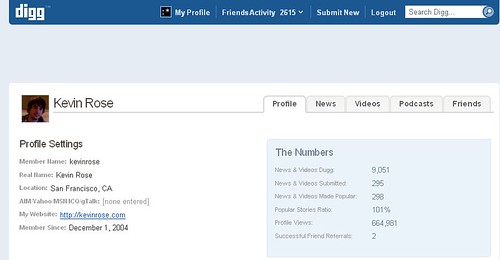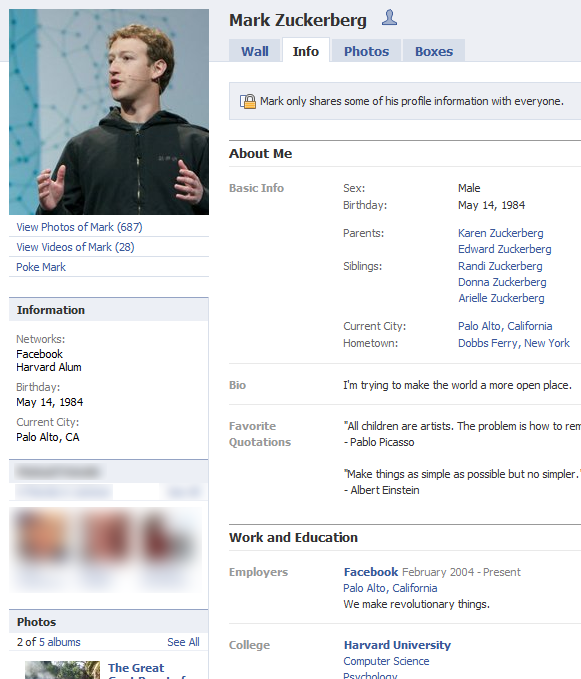Within the last 6 weeks, I’ve begun to understand why Facebook is such a narcissistic medium.
If you’re sad, no one wants to deal with you. They may give you support, but if every post was sad and depressing, that trickles down to how you ultimately end up feeling.
If you’re controversial, someone else will have another opinion and unfriend you.
Happiness (without ego) is the only way to maintain good friendships, and usually, doesn’t impart negative judgments.
Let’s dig into the second item there: controversy. As of late, there’s been a pretty big trend of controversy arising as a result of a particularly troublesome conflict on the other side of the world (for me, at least). As the Middle East gears up in its second month of fighting, many people have exposed themselves to media outlets and have made informed and uninformed opinions (thanks to the wonderful biases of the publications they have selected). I’m not here to talk about my opinion on the conflict, but I know that my proximity to the situation in that I have many friends and family affected means that I have a fairly strong opinion and I know I’m not alone.
There are many people who read an article or two and make up their mind about what happened. This is all fine and good, but when you’re about to post an opinion about it without due diligence, which frankly requires reading a lot more than a handful of articles, you may get blasted.
Let’s take that out of context for a minute.
Blasted is how you may see it.
That is, if you’re going to write an opinion and your friend engages with you, you may hear their vehement opposition to your claim.
And that’s perfectly okay.
That is, it’s okay if and only if they’re opposing your claim.
I’ve been moderating online communities since 1995. As a mere teenager, I was sitting in AOL chat rooms, dealing with some of the harshest criticisms because I was in a position of leadership. From that very early impressionable age, I learned all about thick skin.
Later in my teenage years, I discovered online forums that were extremely European-dominated (lots of male teenagers who hated the US’s apparent control of the world). It became clear that not only was I the only female among them, I also represented a nation that was mostly hated by our teenage counterparts. It was an extremely rude awakening for me, bearing in mind I’m one of the most tolerant people ever, and here I was dealing with abuse because of nothing else except that I was American.
Good thing I didn’t usually disclose I was Jewish on top of that.
I also forged a lot of strong relationships in my early teenage years. Here I was, a ~15-16 year old girl, spending her nights after doing homework chatting with 30-40somethings with problems, and they didn’t hesitate to let me know it. I was known for a good time as the person who would try to cheer people up (“Don’t Worry, be Happy” was actually the theme song associated with my entrance in a chat room), and yet, when people were in a bad mood, they weren’t sensitive to my age and let me hear it. There were times when I’d actually go to bed crying.
In short, I learned to mature because that was the only thing I could do in order to grow up and still tolerate the online world.
And this was before probably 95% of the world even realized the social Internet existed. 🙂
That’s my background on my previously thin skin. I needed to thicken that baby fast in order to stay alive in what clearly was not a happy medium all the time. As a moderator especially, my mentor would reiterate that disagreement was okay if you attack the action, not the person.
Remember when I said you could get blasted? Not you. Read the comment by your dissenter again. Is he saying you’re an idiot, or is he saying your comments are uninformed?
The right way to engage with someone online is not to blast the person. It’s to disagree with the opinion. That is extremely different from the interpretations people have made of civil comments made by well-intentioned debaters. I’m here to set the record straight.
As a parent, you’re very careful with your words, I’d think. When your toddler or preschooler does a bad thing, do you say “Bad boy!” or do you say “That was not an appropriate thing to do.”? I’m going to assume the latter is your choice of words.
If you say something in a similar vein online, however, people take it personally. They go ballistic. They unfriend you. They tell you stop personally attacking their friends.
What constitutes a personal attack when it’s merely a disagreement?
Just because someone disagrees with you and may do so firmly or harshly does not mean they are making it personal.
As social media has allowed for geographic barriers to fall and for a much more diverse culture, we are bound to have differing opinions about everything. I don’t consider myself any better than the next person, but I do consider myself having the experience of having “suffered” through my teenage years learning of this diversity just as it was emerging to offer some sound advice. A different opinion is not a reason to hate someone. It’s not a reason to unfriend someone. (Come on, do you agree with everything your BFF, significant other, or child does or says?). A room full of 10 people will have 20 different opinions, and yet we can grow up and respect each other, even if our delivery in making our points is harsh (that’s what distinguishes some people as stronger debaters from others).
I noticed that when I find myself amid a controversy, I enter them with a completely blank slate. I don’t pay attention to the name of the poster, but may tag him/her without paying further mind to who I am addressing. I don’t judge. I may make vehement claims, but ensure that the controversy stays civil on my end, despite other’s interpretations of said debate (please reread this post when you’re done). And that’s what I aim to do in every single disagreement I have.
I realize I’m probably the only person who does this.
(Well, in all honesty, there may be a few more people who do. But only a few of you.)
You’ll feel so much better if you’d preach tolerance and acceptance, respecting disagreement in a polite way. Chances are, those comments, however rigid they sound, are not out to get you. Don’t read between the lines, seeing hate and intolerance, if there’s nothing there to read but a person who simply does not see eye to eye with you.
I promise that approaching people respectfully will make you feel happier about your online engagements. Do me a favor and take the approach of having an open mind, aware that there are people who won’t agree with you or what you have to say, but who aren’t judging your personal character for it. You’ll walk out feeling happier, stronger, more educated, and empowered. You may not like what they have to say, but always remember, it is never personal with the right choice of words.






Well, Tamar, I think you have been a bit ruffled, as your post comes from a place that reflects your frustration, and the interactions you’ve hinted at *did* get under your skin. Which is normal.
There’s quite a lot that I recognize in your description of online interactions, and I wish there was a way to teach the general online user things like fallacy arguments, rules for posting, etc. Except the people who need those lessons won’t pay attention, and those who already understand, well…..we get frustrated. We rant some. Simmer. Then go back into the fray.
Thank you for writing this.
Thanks Elizabeth – to be clear, it only went under my skin because of the reactions from people I once respected (or were *really* good friends with), with them taking my harmless statements far more personally and that certainly translates to a change in our relationships. That’s not what I’m looking for. I’m looking for a place to have intellectual debates without disagreement looking like it’s an all out war. It’s not! 🙂
btw, I am not representing merely myself with this post. I see so many of my friends suffering the same fate, when all they want to do is have a platform for disagreement. On Facebook, you need to be lovey dovey to your friends even if you disagree, or else someone may unfriend you and accuse you of personal attacks. Frustrating!
This is great post and very timely for me. I have recently gotten more involved on the Internet through Twitter and blogging. I guess my naiveté shows, because I see the opportunity to learn, to engage with such a broad spectrum of people as such a positive thing. So it is so disappointing to be called names (and I am SO unused to being cussed at lol), just because I may disagree or am just trying to understand where someone’s views are coming from.
I’ve noticed (and I don’t think this is some great revelation) that many people use comment sections in articles and blogs to get out all their personal frustration, because they feel they have nowhere else to get an audience. A good example is in the the recent happenings in Israel and Gaza, where comments everywhere just degraded into mudslinging, lies and one-upmanship and barely had anything to do with actual facts. In my mind, a great opportunity for real dialog, lost.
I just happened onto your blog from Twitter. A nice encounter! I wish you well with this!
Thanks Laurie! In many cases, you probably see a lot of those comments being posted anonymously, right? People are afraid to put their name behind logic and reason, but don’t mind being anonymous trolls on the Internet. It’s sad.
The Middle Eastern conflict has really brought out some of the best and worst in people. Unfortunately, I’ve seen a big part of the worst, with me, someone promoting life and tolerance to all people, regardless of religion, being the subject of such hateful words because I think everyone has the right to life! That’s something not everyone agrees with. I could name names and professions, but at the end of the day, in most cases, I just don’t know who the heck these people are. I’m glad I’ve made a memorable impression, though, but it really shouldn’t be that way!
You nailed it! What we are seeing in social media is the reality of online human behavior, it is unfiltered, unafraid, and yet not having to be held accountable for their actions (in this case written words, which is behavior).
I think we need to perform a study to determine if there is a correlation between the number of selfies and number of times the same people unfriend someone. I have to believe the higher the narcissism the higher rate of defriending, unfollowing, or disconnecting.
Well done Tamar!
Ha, this may be true, but I think it’s much much higher when someone disagrees. Then all hell breaks loose.
Thanks for commenting, Jay 🙂
I mostly agree. There are some people that hold positions that indicate such a low quality of thinking that I can’t be their buddy anymore, and I generally quietly remove them. Right after 9/11…it seemed that you could only have one opinion or else. And that sucked.
Cool, thanks Chris. I have to hear what the “mostly” means though. 😉
Great article. I know exactly what you mean. I’ve been managing our organization’s social media accounts and at first I took the attacks personally but have built up a tough skin. I know they just want to vent and it’s not direct towards me. There are just some people who are not happy people and want everyone to know it through the social media platform. It’s sad when people hide behind their words and say things they would probably never say to the person’s face. It’s always fun when we actually follow up and call the person complaining. They tend to get really quiet when they are actually talking to a person on the phone. Or we tell them how to talk to someone face-to-face at our events so we can understand their issue. Funny how they never show up.
Thanks for the reply, Marla, and sorry for the delay as I had to find your comment. 🙂
This is actually a really good point. My issues are more personal than as a representative of a business, but I deal with the customer service side of things too (see this post; I’m servicing over 1 million customers this way).
It’s funny how people would be dicks online and timid offline–even when they use their names. Soon, if we can ban online anonymity, we’ll be having quite the problem with these people saying things online but not owning up to their comments offline. Exactly — funny how that is.